
Majestic Splendor of the Ötztal Alps
The Ötztal Alps in Austria are a breathtaking mountain range that draws outdoor enthusiasts from all over the world. Nestled in the Tyrol region, this destination offers stunning views, pristine nature, and a host of activities for adventure seekers and nature lovers alike. In winter, the Ötztal Alps transform into a snowy paradise perfect for skiing, snowboarding, and other winter sports. The region is home to some of Austria's best ski resorts, including Sölden and Obergurgl-Hochgurgl. With well-groomed slopes, modern lifts, and a variety of runs for all skill levels, it’s easy to see why this area is a top pick for winter sports. During the warmer months, the Ötztal Alps offer countless opportunities for hiking, climbing, and mountain biking. The lush green valleys and towering peaks provide a perfect backdrop for outdoor adventures. The area is also rich in natural wonders like the Stuibenfall, Tyrol’s highest waterfall, and the scenic Piburger See lake. Beyond natural beauty, the Ötztal Alps are steeped in history and culture. Visitors can explore quaint alpine villages, experience local traditions, and savor the region’s delicious cuisine. From hearty Tyrolean dishes to fine dining, there’s something to satisfy every palate.
Local tips in Ötztal Alps
- Check the weather forecast, as conditions can change rapidly in the mountains.
- Book ski passes and accommodation early during the winter season to secure the best options.
- Explore local traditions and festivals for a rich cultural experience.
- Pack appropriate gear for hiking and climbing, including sturdy boots and layered clothing.
- Try the local cuisine, including Kaiserschmarrn and Tyrolean dumplings, for a true taste of the region.
Majestic Splendor of the Ötztal Alps
The Ötztal Alps in Austria are a breathtaking mountain range that draws outdoor enthusiasts from all over the world. Nestled in the Tyrol region, this destination offers stunning views, pristine nature, and a host of activities for adventure seekers and nature lovers alike. In winter, the Ötztal Alps transform into a snowy paradise perfect for skiing, snowboarding, and other winter sports. The region is home to some of Austria's best ski resorts, including Sölden and Obergurgl-Hochgurgl. With well-groomed slopes, modern lifts, and a variety of runs for all skill levels, it’s easy to see why this area is a top pick for winter sports. During the warmer months, the Ötztal Alps offer countless opportunities for hiking, climbing, and mountain biking. The lush green valleys and towering peaks provide a perfect backdrop for outdoor adventures. The area is also rich in natural wonders like the Stuibenfall, Tyrol’s highest waterfall, and the scenic Piburger See lake. Beyond natural beauty, the Ötztal Alps are steeped in history and culture. Visitors can explore quaint alpine villages, experience local traditions, and savor the region’s delicious cuisine. From hearty Tyrolean dishes to fine dining, there’s something to satisfy every palate.
When is the best time to go to Ötztal Alps?
Iconic landmarks you can’t miss
AREA 47 - Tirol
Experience Austria's ultimate outdoor adventure park: Thrilling water slides, climbing, wakeboarding, and more in the heart of the Tyrolean Alps.
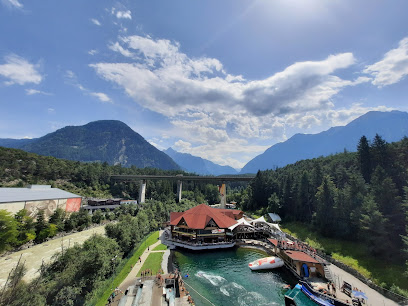
Stuibenfall
Explore the breathtaking Stuibenfall Waterfall in Niederthai, Austria – a natural wonder offering stunning views and adventurous hiking trails.
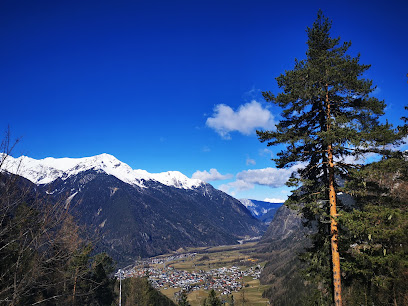
Rosengartenschlucht
Explore the breathtaking Rosengartenschlucht in Imst, Austria: a natural wonder with stunning waterfalls, lush greenery, and dramatic rock formations.
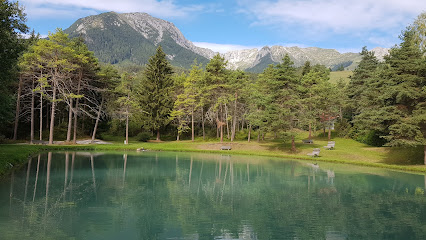
Ötzi-Dorf - archäologischer Freilichtpark
Experience Neolithic life firsthand at Ötzi-Dorf in Umhausen, an archaeological park dedicated to Ötzi the Iceman and the Stone Age world.
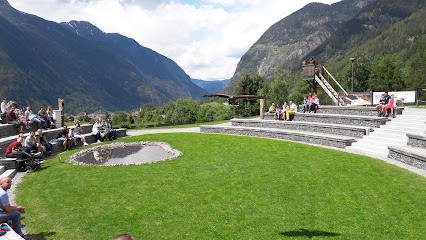
Widiversum
Discover Widiversum in Oetz: A high-altitude family adventure with interactive trails, stunning views, and a quest to find a magic crystal.
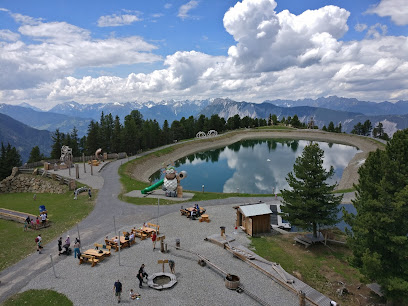
Greifvogelpark Umhausen
Witness the majesty of eagles, vultures, and falcons in breathtaking flight at Greifvogelpark Umhausen, nestled in the Tyrolean Alps.
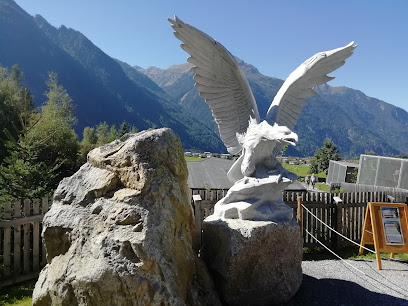
Naturpark Ötztal
Explore Tyrol's Ötztal Nature Park: glaciers, forests, lakes, hiking, and cultural heritage in a stunning Alpine setting.
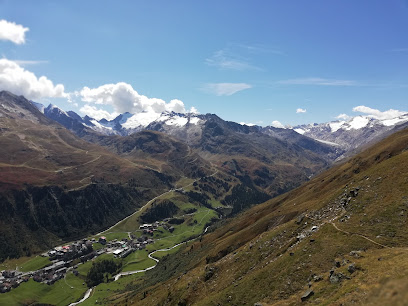
Habicher See
Escape to the serene beauty of Habicher See in Austria's Ötztal Valley, a perfect hiking destination for nature lovers and adventure seekers.
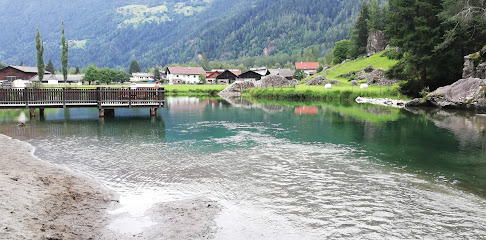
Ötztaler home and open-air museum
Step back in time at the Ötztaler Home and Open-Air Museum and discover the rich cultural heritage of the Ötztal Valley.
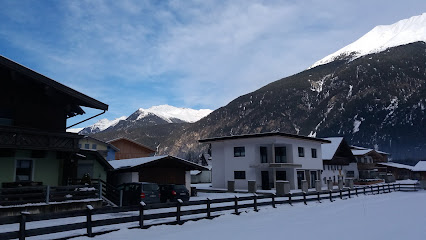
Teufelskanzel
Hike to the Devil's Pulpit in Ötztal for panoramic alpine views and a taste of local legend.
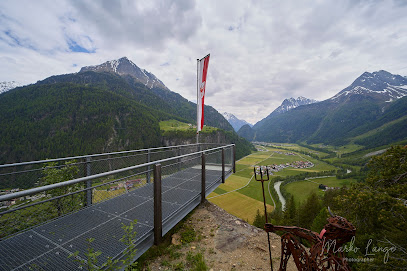
Oetztal Alps
Discover the majestic Ötztal Alps: where glaciers meet towering peaks, and ancient history merges with thrilling outdoor adventures in Tyrol.
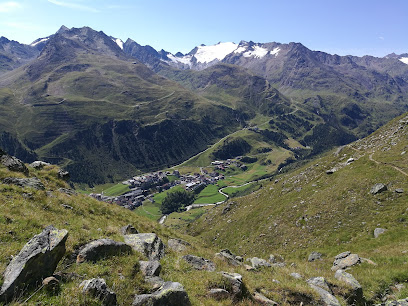
Unmissable attractions to see
AREA 47 - Tirol
Discover the thrill of adventure at AREA 47 in Tirol - an amusement park offering excitement, water sports, and stunning alpine views for all ages.
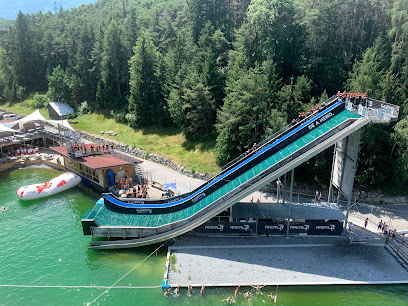
Stuibenfall
Discover the stunning Stuibenfall Waterfall in the Ötztal Valley, Austria – a breathtaking natural attraction perfect for hiking and exploring the great outdoors.
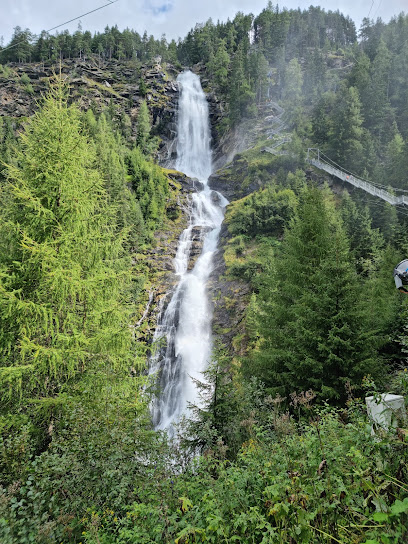
Duomo di Bolzano
Discover the Duomo di Bolzano, a stunning Gothic cathedral rich in history and architectural beauty, located in the heart of Bolzano, Italy.
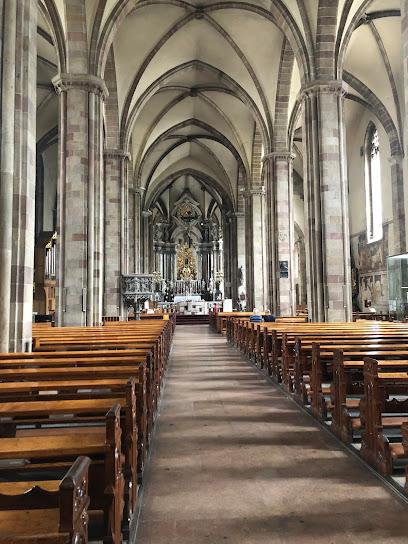
Rosengartenschlucht
Explore the breathtaking beauty of Rosengartenschlucht, a must-visit gorge in the heart of the Tyrolean Alps, perfect for nature lovers and adventure seekers.
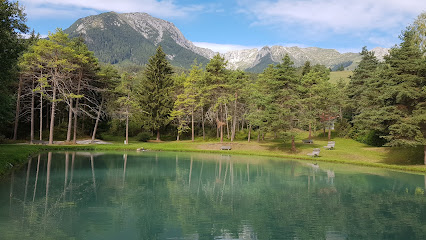
Imster Bergbahnen
Discover Imster Bergbahnen: a breathtaking alpine adventure with scenic views, hiking trails, and thrilling summer toboggan runs in the heart of Austria.
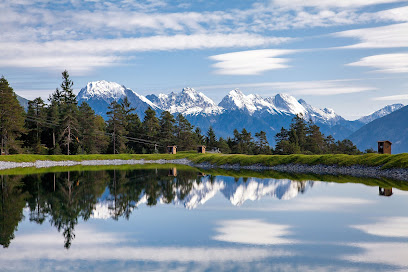
Wolfsklamm
Explore Wolfsklamm, a breathtaking gorge in Tirol, Austria, perfect for hiking, history, and stunning natural beauty.
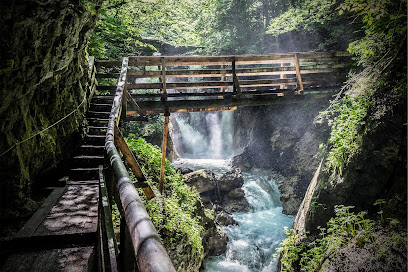
007 Elements
Explore the thrilling world of James Bond at 007 Elements in Sölden, a unique attraction blending cinema and stunning alpine scenery.
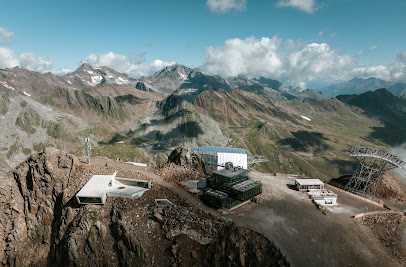
Ötzi-Dorf - archäologischer Freilichtpark
Explore Ötzi-Dorf, an open-air museum bringing the story of the Iceman and prehistoric life to life in the heart of the Ötztal Valley.
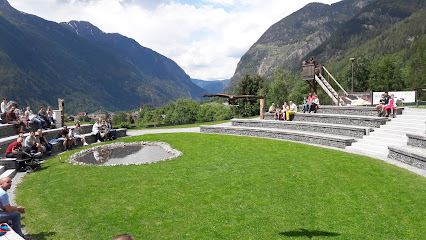
Timmelsjoch Hochalpenstraße
Experience the breathtaking views and cultural heritage along the Timmelsjoch Hochalpenstraße, a scenic alpine route connecting Austria and Italy.
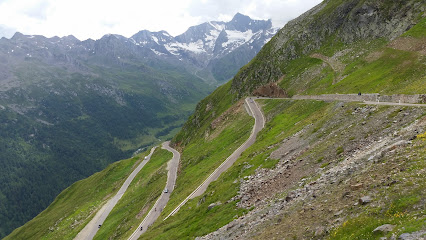
Castel Mareccio
Explore Castel Mareccio, a stunning medieval castle in Bolzano surrounded by vineyards and breathtaking landscapes, rich in history and charm.
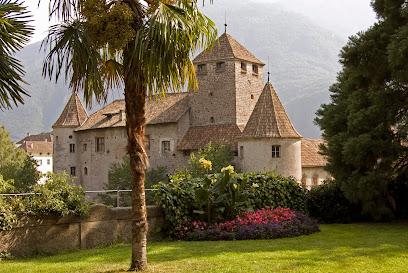
Lötzklamm - Zammer Lochputz
Explore the breathtaking beauty of Lötzklamm - Zammer Lochputz, a stunning gorge in the Austrian Alps filled with waterfalls and hiking trails.
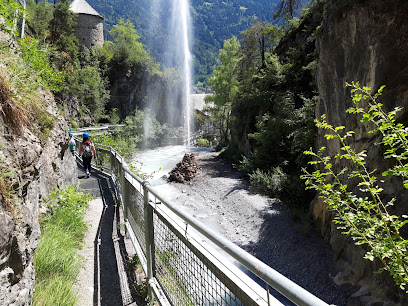
Widiversum
Experience the enchanting Widiversum in the Ötztal Valley, where adventure meets nature in a stunning alpine playground for all ages.
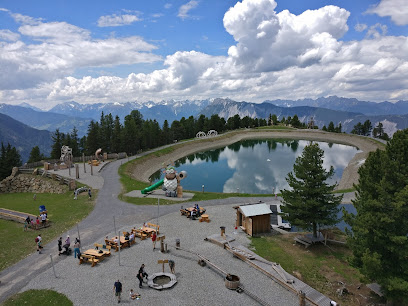
Greifvogelpark Umhausen
Experience the wonder of birds of prey at Greifvogelpark Umhausen, a stunning animal park nestled in the scenic Ötztal Valley, perfect for nature lovers.
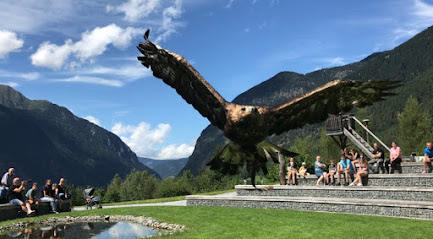
Tischofer Cave
Explore the breathtaking Tischofer Cave in Kufstein, a unique blend of natural beauty and historical significance nestled in the stunning Kaisertal valley.
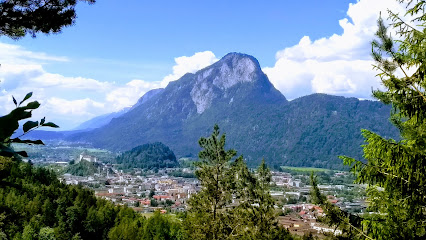
Naturpark Ötztal
Experience the breathtaking beauty and diverse wildlife of Naturpark Ötztal, a paradise for hikers and nature lovers in Austria.
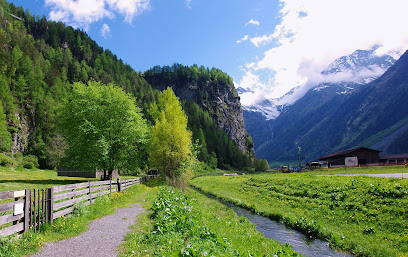
Essential places to dine
Gasthof Andreas Hofer
Experience authentic Austrian cuisine at Gasthof Andreas Hofer in Umhausen – where tradition meets flavor in a stunning alpine setting.
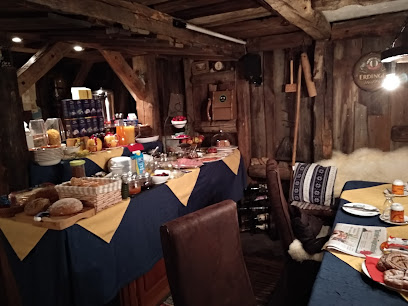
Ötztalerei Café - Burgerbar - Eiswerkstatt
Experience gourmet burgers and artisan ice cream at Ötztalerei Café in Umhausen – a must-visit culinary destination in Austria's stunning Ötztal Valley.
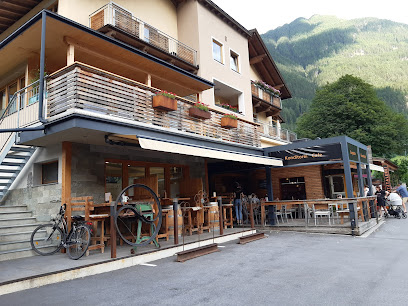
Gasthaus Blaue Goas
Discover the flavors of Tyrol at Gasthaus Blaue Goas - your go-to spot for authentic alpine cuisine in Oetz.
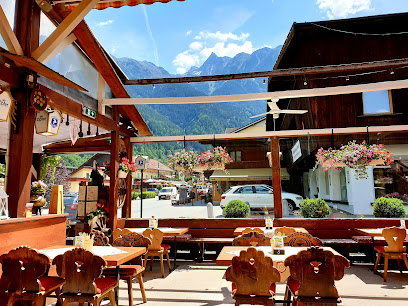
Kuhtaile Alm
Discover Kuhtaile Alm: A scenic restaurant in Ötztal Valley serving exquisite traditional Austrian cuisine with stunning mountain views.
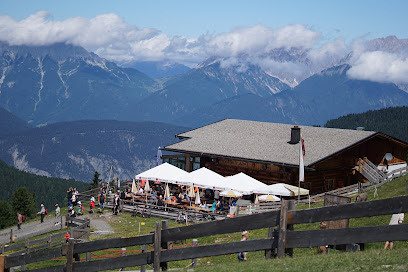
Gasthof Krone Umhausen e.U.
Experience authentic Austrian cuisine at Gasthof Krone Umhausen - where tradition meets taste in the heart of Tyrol.
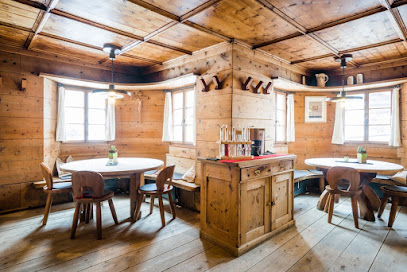
Restaurant on Piburger lake
Experience exquisite Tyrolean cuisine with stunning views at Restaurant on Piburger Lake - a must-visit destination in Austria.
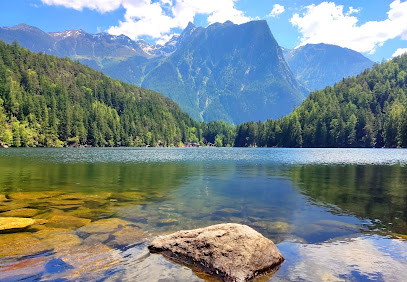
Pizzeria Andiamo
Discover authentic Italian flavors at Pizzeria Andiamo in Ötztal Bahnhof—where every pizza tells a delicious story.
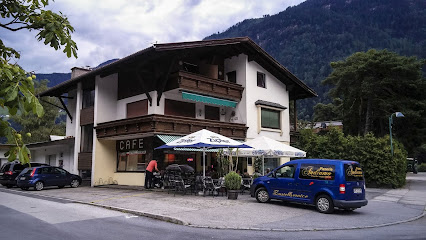
Madre's Restaurant & Bar
Experience the delightful flavors of Italy at Madre's Restaurant & Bar in Ötztal Bahnhof – where great food meets exceptional ambiance.
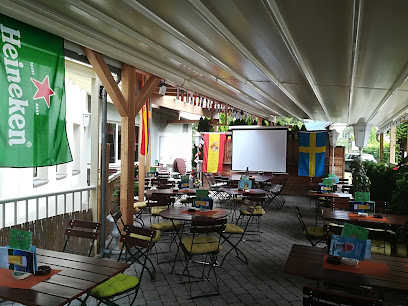
Restaurant Ötztaler Stube
Discover the flavors of Austria at Restaurant Ötztaler Stube - a fine dining gem nestled in Sölden's luxurious Hotel Das Central.
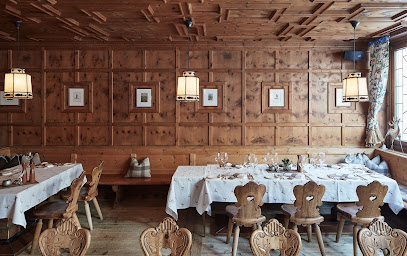
Markets, malls and hidden boutiques
Designer Outlet Parndorf
Discover unbeatable fashion deals and a family-friendly atmosphere at Designer Outlet Parndorf, Austria's premier shopping destination.
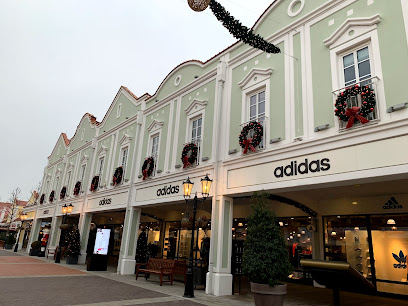
PlusCity
Explore PlusCity, a vibrant shopping mall in Pasching, Austria, featuring diverse shops and delightful dining options for the ultimate retail experience.

EUROPARK - Salzburg
Experience the best of shopping, dining, and entertainment at Europark, Salzburg's ultimate shopping destination for tourists and locals alike.
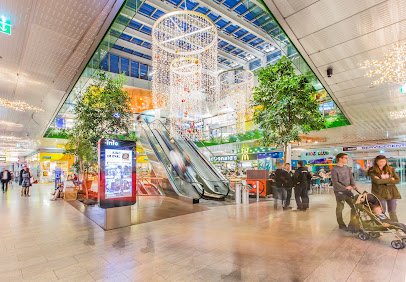
Fashion Outlet Parndorf
Shop till you drop at Fashion Outlet Parndorf, Austria's premier destination for discounted designer brands and a delightful shopping experience.
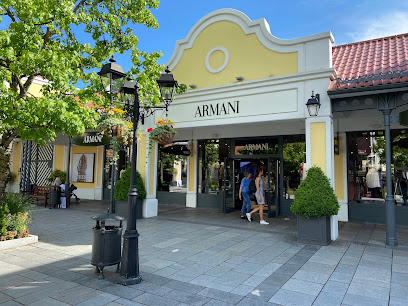
Designer Outlet Salzburg
Discover unbeatable deals on top brands at Designer Outlet Salzburg, the ultimate shopping paradise in Austria's scenic landscape.
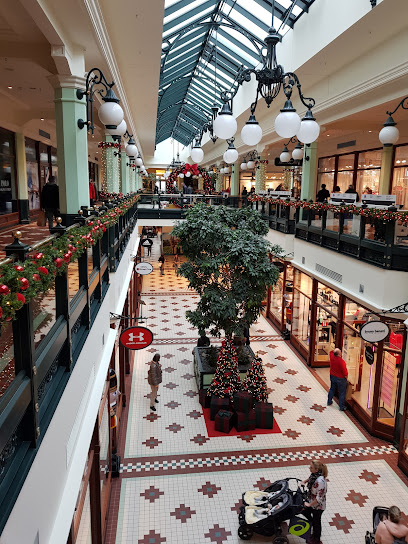
DEZ Innsbruck
Experience the best of shopping, dining, and entertainment at DEZ Innsbruck, your go-to destination in the heart of the city.
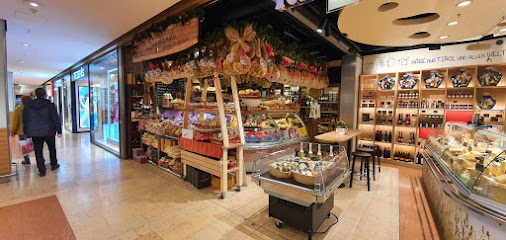
ATRIO Villach
Discover ATRIO Villach: A vibrant shopping mall in Austria offering diverse shops, delicious dining options, and entertainment for all ages.
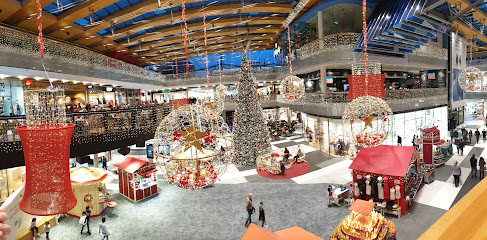
City-Arkaden Klagenfurt
Explore City-Arkaden Klagenfurt: Your one-stop shopping and dining destination in Austria's beautiful Klagenfurt.
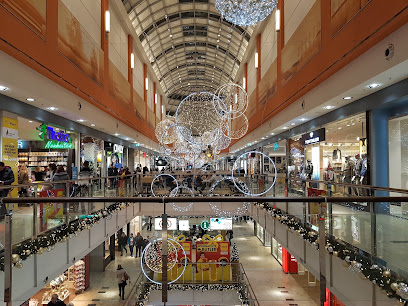
Passage Linz
Experience the essence of modern shopping at Passage Linz, featuring a variety of stores, dining options, and entertainment in the heart of Linz, Austria.
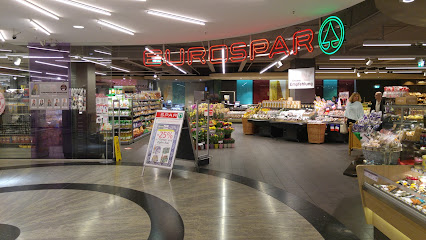
Steffl
Discover the elegance of Vienna at Steffl, where luxury meets local charm in a premier shopping experience.
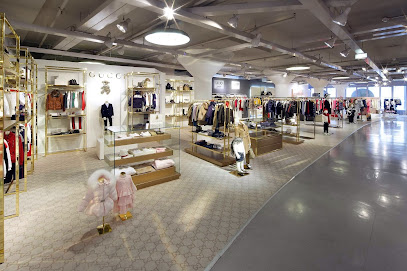
WEBERZEILE
Experience the best shopping in Ried im Innkreis at Weberzeile, where diverse stores and delightful dining options await.
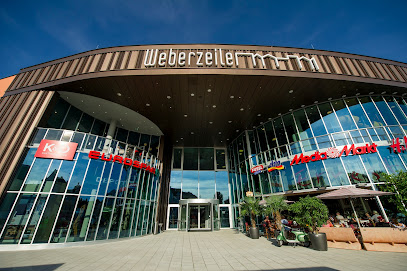
Stadtgalerien Schwaz
Explore the unique shopping experience at Stadtgalerien Schwaz, where fashion, food, and fun come together in the heart of Austria.
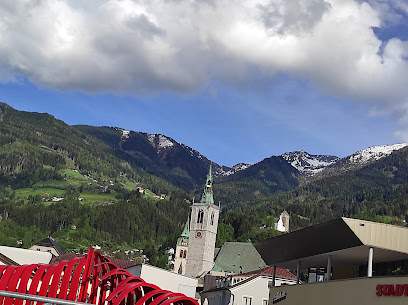
Shopping Center West
Discover an extensive shopping experience at Shopping Center West in Innsbruck, where retail meets relaxation amidst stunning alpine scenery.
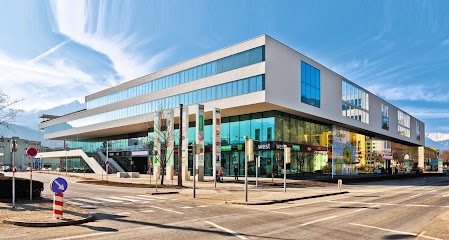
Ötzi-Dorf - archäologischer Freilichtpark
Explore Ötzi-Dorf, the open-air archaeological park that brings prehistoric life to the present amidst the stunning Ötztal Alps.
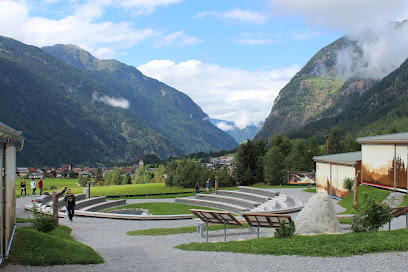
Natur Camping Kuprian Ötztal
Explore the breathtaking Ötztal Valley at Natur Camping Kuprian, where nature meets comfort in a serene camping experience.
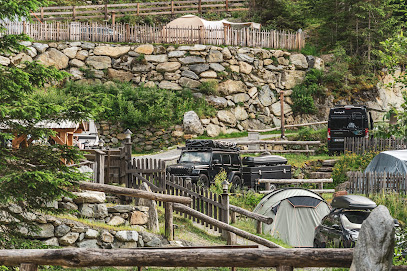
Essential bars & hidden hideouts
Aqua Dome
Experience the ultimate relaxation at Aqua Dome, a stunning wellness resort with thermal baths and breathtaking alpine vistas in Ötztal Valley.
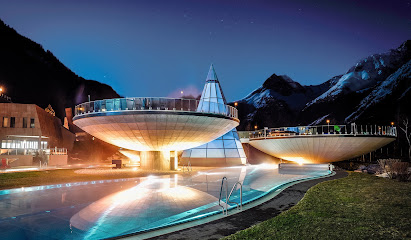
AREA 47 - Tirol
Discover the ultimate thrill at AREA 47 - Tirol, where adventure meets stunning alpine beauty in Austria's breathtaking Ötztal Valley.
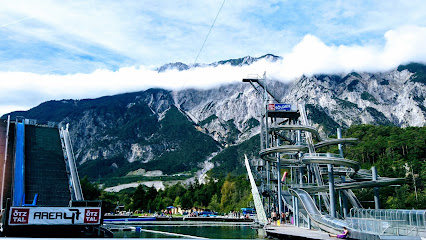
Restaurant ice Q
Experience fine dining at Restaurant ice Q, where culinary artistry meets breathtaking mountain scenery in Sölden, Austria.
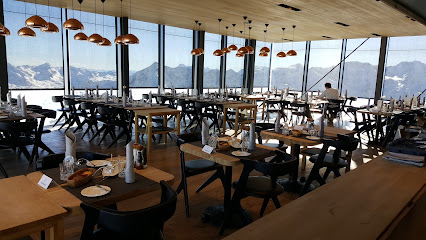
Rotkogelhütte
Savor authentic Austrian cuisine amidst breathtaking alpine views at the charming Rotkogelhütte in the Ötztal Alps.
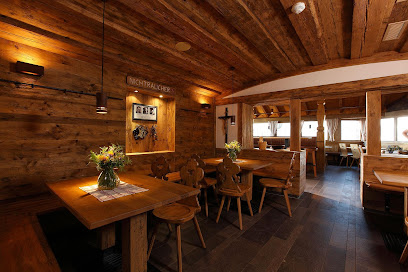
Nederhütte
Experience authentic Austrian cuisine with stunning mountain views at Nederhütte in Obergurgl, a culinary delight for every traveler.
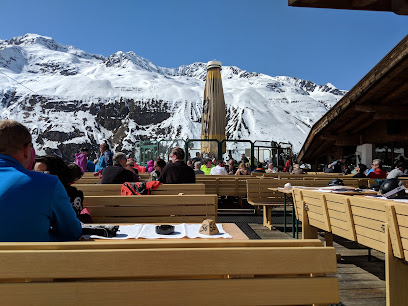
TOP Mountain Star
Discover the perfect blend of stunning Alpine views and exquisite dining at TOP Mountain Star in Hochgurgl, Austria.
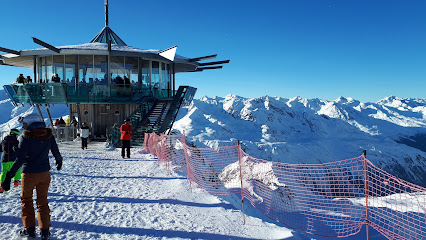
Ötztalerei Café - Burgerbar - Eiswerkstatt
Experience gourmet burgers and artisan ice cream at Ötztalerei Café in Umhausen, where every bite is a journey of flavors and local goodness.
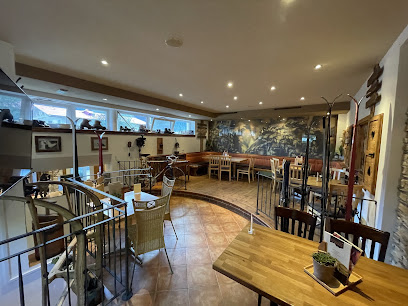
Top Mountain Crosspoint Restaurant
Experience the ultimate alpine dining at Top Mountain Crosspoint Restaurant, where breathtaking views meet exquisite cuisine in the heart of the Tyrolean Alps.
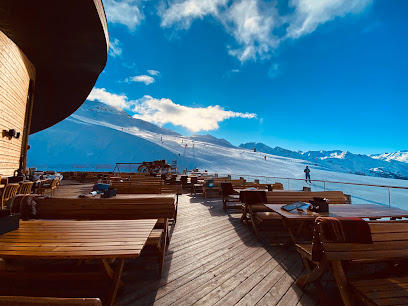
Naturhotel Waldklause
Discover the perfect blend of luxury and nature at Naturhotel Waldklause, an eco-friendly retreat in the stunning Ötztal Valley.

Greenvieh
Experience the unforgettable dining at Greenvieh in Obermieming, where culinary excellence meets stunning alpine views.
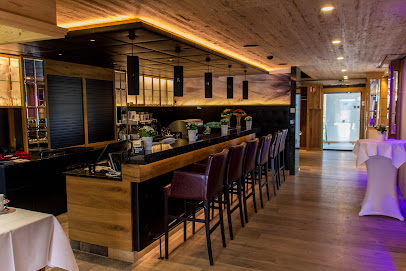
Après Ski Philipp
Experience the vibrant atmosphere of Après Ski Philipp in Sölden, where delicious food, drinks, and lively entertainment await after a day on the slopes.
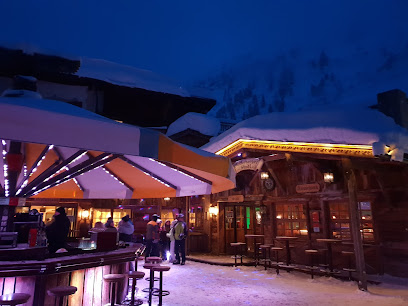
Kuhtaile Alm
Experience authentic alpine cuisine and stunning mountain views at Kuhtaile Alm in the heart of the Ötztal region.
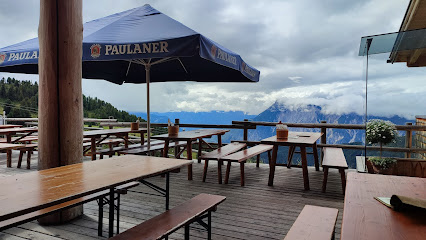
Posthotel Kassl
Experience luxury and tranquility at Posthotel Kassl, a wellness retreat nestled in the scenic Oetz Valley, surrounded by the majestic Tyrolean Alps.
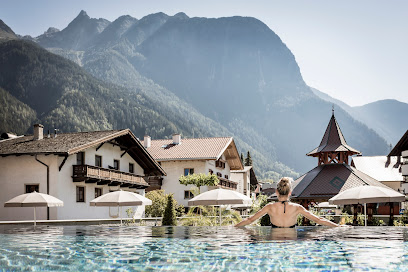
Black Orange Bar Sölden
Discover the lively atmosphere of Black Orange Bar Sölden, where great drinks and unforgettable nights await in the heart of the Austrian Alps.
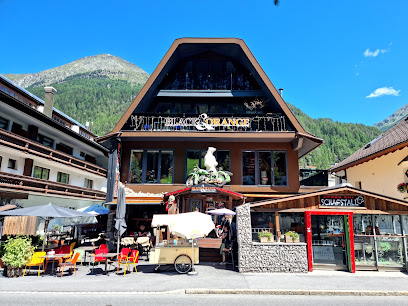
Local Phrases about Ötztal Alps
-
- HelloServus
[SAYR-voos] - GoodbyeAuf Wiedersehen
[OWF VEE-der-zayn] - YesJa
[yah] - NoNein
[nine] - Please/You're welcomeBitte
[BIT-tuh] - Thank youDanke
[DAHN-kuh] - Excuse me/SorryEntschuldigung
[ENT-shool-di-goong] - How are you?Wie geht's?
[vee GAYTS] - Fine. And you?Gut. Und dir?
[goot oont deer] - Do you speak English?Sprechen Sie Englisch?
[SPRE-khen zee ENG-lish] - I don't understandIch verstehe nicht
[ikh fer-SHTAY-uh nikht]
- HelloServus
-
- I'd like to see the menu, pleaseIch möchte bitte die Speisekarte sehen
[ikh merkht-uh BIT-tuh dee SHPY-zuh-kahr-tuh zay-en] - I don't eat meatIch esse kein Fleisch
[ikh ESS-uh kine flysh] - Cheers!Prost!
[prohst] - I would like to pay, pleaseIch möchte bitte zahlen
[ikh merkht-uh BIT-tuh ZAH-len]
- I'd like to see the menu, pleaseIch möchte bitte die Speisekarte sehen
-
- Help!Hilfe!
[HEEL-fuh] - Go away!Geh weg!
[gay vekh] - Call the Police!Rufen Sie die Polizei!
[ROO-fen zee dee poh-LEE-tsy] - Call a doctor!Rufen Sie einen Arzt!
[ROO-fen zee I-nen ahrts] - I'm lostIch habe mich verirrt
[ikh HAH-buh meekh fuh-REERT] - I'm illMir ist schlecht
[meer ist shlekht]
- Help!Hilfe!
-
- I'd like to buy...Ich möchte ... kaufen
[ikh merkht-uh ... KOW-fen] - I'm just lookingIch schaue nur
[ikh SHOW-uh noor] - How much is it?Wie viel kostet das?
[vee feel KOSS-tet dahs] - That's too expensiveDas ist zu teuer
[dahs ist tsoo TOY-er] - Can you lower the price?Können Sie den Preis senken?
[KERN-en zee den prays ZEN-ken]
- I'd like to buy...Ich möchte ... kaufen
-
- What time is it?Wie spät ist es?
[vee SHPAYT ist es] - It's one o'clockEs ist ein Uhr
[es ist ighn oor] - Half past (10)Halb zehn
[halb tsayn] - MorningMorgen
[MOR-gun] - AfternoonNachmittag
[NAKH-mi-tahg] - EveningAbend
[AH-bent] - YesterdayGestern
[ge-STERN] - TodayHeute
[HOY-tuh] - TomorrowMorgen
[MOR-gun] - 1eins
[ines] - 2zwei
[tsvai] - 3drei
[dry] - 4vier
[feer] - 5fünf
[foontf] - 6sechs
[zeks] - 7sieben
[zee-ben] - 8acht
[akht] - 9neun
[noyn] - 10zehn
[tsayn]
- What time is it?Wie spät ist es?
-
- Where's a/the...?Wo ist ein/der...?
[vo ist ighn/der] - What's the address?Wie ist die Adresse?
[vee ist dee ah-DRES-uh] - Can you show me (on the map)?Können Sie mir das zeigen (auf der Karte)?
[KERN-en zee meer dahs TSI-gen (ouf der kar-tuh)] - When's the next (bus)?Wann kommt der nächste (Bus)?
[vahn kohmt der NAYKH-stuh (boos)] - A ticket (to ....)Eine Fahrkarte (nach ....)
[I-ne FAHR-kar-tuh (nahkh)]
- Where's a/the...?Wo ist ein/der...?
History of Ötztal Alps
-
In 1991, a pair of German tourists discovered a well-preserved natural mummy in the Ötztal Alps, which was later named Ötzi the Iceman. This remarkable find dates back to around 3300 BC and provides invaluable insights into Copper Age Europe. Ötzi's body and belongings were astonishingly intact, offering clues about his diet, clothing, tools, and even his last moments.
-
The Ötztal Alps were a crucial nexus for ancient trade routes connecting northern and southern Europe. The region facilitated the movement of goods such as salt, copper, and other valuable resources. Archaeological evidence, including artifacts and trail markings, attests to the vibrant exchange networks that crisscrossed these mountains.
-
During the medieval period, the Ötztal Alps saw the emergence of numerous small settlements and fortifications. The strategic importance of these high-altitude communities lay in their control over mountain passes and their ability to monitor and tax trade routes. Ruins of castles and ancient homesteads still dot the landscape, offering glimpses into medieval life.
-
From the 15th to the 19th century, the Ötztal Alps experienced a mining boom, particularly for precious metals such as silver. This period saw the establishment of mining towns and the influx of workers seeking fortune. The remnants of mining operations, including tunnels and equipment, remain scattered throughout the region.
-
The Ötztal Alps were not immune to the impacts of World War II. The mountainous terrain served as a natural barrier and strategic point for military operations. Stories of skirmishes, resistance movements, and the hardships endured by local populations are part of the area's wartime history. Memorials and museums now commemorate these events.
-
The late 19th and early 20th centuries marked the beginning of tourism in the Ötztal Alps. The construction of railways and roads made the area more accessible to visitors. The region's stunning landscapes and natural beauty attracted mountaineers, hikers, and later, winter sports enthusiasts. Today, tourism remains a vital part of the local economy.
Ötztal Alps Essentials
-
The Ötztal Alps are located in the Tyrol region of Austria. The nearest major airport is Innsbruck Airport, approximately 85 kilometers away. From Innsbruck, you can take a train to Ötztal Bahnhof, which is well-connected to various parts of the region. Alternatively, you can rent a car at the airport for a more flexible travel experience. Another option is to fly into Munich Airport in Germany and then take a train or drive to the Ötztal Alps, which is about a 3-hour journey.
-
Within the Ötztal Alps, public transportation options include buses and trains that connect the various towns and villages. The Ötztal Shuttle service offers convenient transfers to and from Innsbruck Airport and Ötztal Bahnhof. For more flexibility, consider renting a car. In winter, free ski buses are available to transport you to the various ski resorts. Biking and hiking are popular ways to get around during the warmer months.
-
The official currency in Austria is the Euro (EUR). Credit cards are widely accepted in hotels, restaurants, and shops, but it’s advisable to carry some cash for smaller establishments and rural areas. ATMs are readily available in most towns and tourist areas. It’s a good idea to inform your bank of your travel plans to avoid any issues with card transactions.
-
The Ötztal Alps are generally very safe for tourists. However, as with any travel destination, it’s important to take standard precautions. Avoid leaving valuables unattended and be mindful of your surroundings, especially in crowded areas. There are no specific high-crime areas targeting tourists, but it is always wise to stay vigilant. In winter, be aware of avalanche warnings and follow local advice when skiing or hiking.
-
In case of emergency, dial 112 for immediate assistance. This number will connect you to police, fire, and medical services. There are medical facilities and pharmacies in major towns like Sölden and Längenfeld. It is highly recommended to have travel insurance that covers medical emergencies and outdoor activities. For minor health issues, pharmacies can provide over-the-counter medications.
-
Fashion: Do dress in layers and bring appropriate gear for outdoor activities. Avoid wearing overly casual or revealing clothing in more formal settings. Religion: Do respect religious customs. When visiting churches, dress modestly and remain quiet. Public Transport: Do validate your ticket before boarding trains and buses. Don’t put your feet on seats. Greetings: Do greet people with a friendly 'Grüß Gott' or a simple 'Hallo'. A handshake is common for more formal introductions. Eating & Drinking: Do sample local specialties like Tyrolean dumplings and schnitzel. Don’t forget to tip; a 5-10% tip is customary in restaurants.
-
To experience the Ötztal Alps like a local, visit the weekly farmers’ markets in towns like Längenfeld and Sölden, where you can buy fresh local produce and handmade crafts. Try to learn a few basic German phrases; locals appreciate the effort and it can enhance your experience. Don’t miss out on the local wellness culture; visit Aqua Dome in Längenfeld for a relaxing thermal spa experience. For an authentic dining experience, seek out smaller, family-run guesthouses and try traditional Tyrolean dishes.
Nearby Cities to Ötztal Alps
-
Things To Do in Innsbruck
-
Things To Do in Davos
-
Things To Do in St. Moritz
-
Things To Do in Arosa
-
Things To Do in Triesenberg
-
Things To Do in Balzers
-
Things To Do in Vaduz
-
Things To Do in Dornbirn
-
Things To Do in Schaan
-
Things To Do in Schellenberg
-
Things To Do in Mauren
-
Things To Do in Eschen
-
Things To Do in Ruggell
-
Things To Do in Gamprin
-
Things To Do in Bregenz












